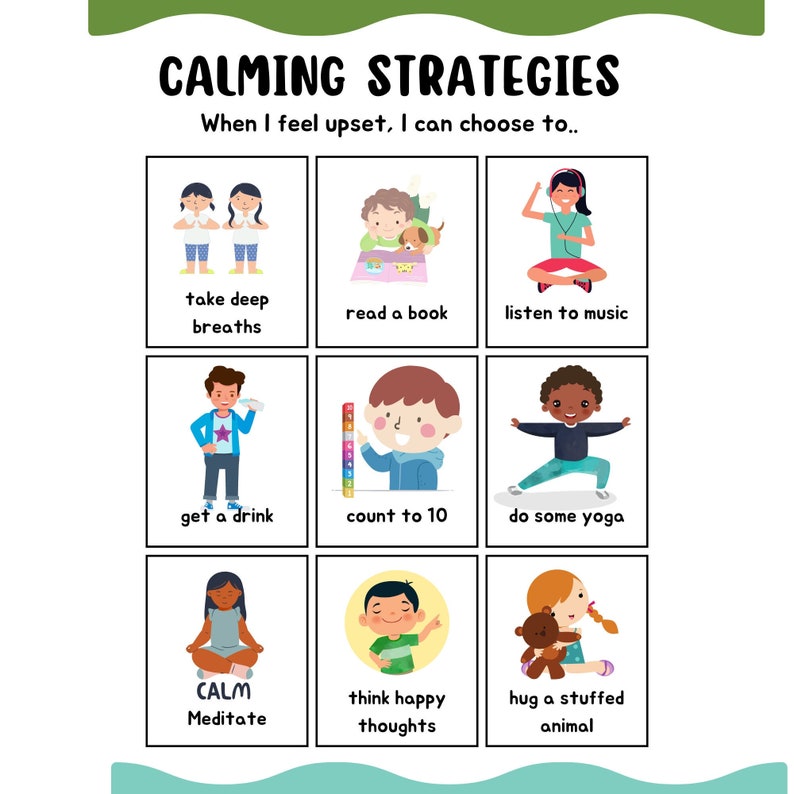Social Emotional Learning Activities for Toddlers
We all know that the toddler years are filled with exploration and discovery, especially between the ages of 1 and 3, when their brains are quickly growing, especially in controlling emotions and social skills.
They experience various feelings, from cheerful giggles to ground-breaking tantrums. While these emotions can feel overwhelming, now is the perfect moment for them to expand their social and emotional development.
This will provide a guide to building strong SEL skills in toddlers through different activities with practical examples and their benefits. We will explore various types of play and how each one contributes to a child’s social and emotional development.
Benefits of Play-Based Social Emotional and Learning Activities for Toddlers
Play-based learning activities provide toddlers with a safe and engaging environment to practice and develop SEL skills. Toddlers can experiment with different emotions and social situations without real-world consequences. These are just a few examples of how play-based activities can nurture various SEL skills.
Building a Social Emotional Vocabulary
Matching games with emotional faces can help toddlers connect visual cues with emotional words. Also, reading stories with diverse emotions allows for discussing characters’ feelings and how they express them.
Navigating Frustration
Playing with calming materials like sand or dough could be a soothing way to handle frustration. Toys with a clear cause-and-effect relationship, like stacking cups or building blocks, could assist in teaching toddlers they are capable of producing outcomes from their actions. Role-playing calming strategies, like taking deep breaths, can equip toddlers with tools to manage frustration.
Cultivating Empathy
Pretend play scenarios like “doctor” and “patient” allow toddlers to understand and respond to another’s emotions, leading to emotional development. Sharing toys and taking turns also build empathy and social cooperation. Reading stories about sharing and kindness will encourage toddlers to consider the impact of their actions on others.
Incorporating these play-based learning activities can transform playtime into a rich learning experience.
Fostering SEL Skills Through Playful Indoor Toddler Activities
Your living room can become a vibrant indoor playground, nurturing social-emotional development through engaging indoor toddler activities despite chilly mornings or rainy days. These activities provide fun and equip your toddler with essential social and emotional development skills.
Learning Sharing and Cooperation
Here are some activities you can do with your toddler to learn about teamwork.
- Build a pillow fort together or create a giant obstacle course made of furniture – working towards a common goal builds cooperation.
- Board games with simple rules encourage turn-taking and following instructions, essential skills for collaboration.
Understanding Expressing Emotions
Helping toddlers identify and express their emotions is crucial for their emotional development. Here are some ways to make emotions a fun exploration.
- Create an emotion chart together. Use pictures from magazines or draw faces with different expressions. Label each face with an emotion word. Throughout the day, refer to the chart to help your toddler identify their feelings and talk about them.
- Choose children’s books that explore diverse emotions. As you read, discuss how the characters feel and how they express those feelings.

Building Empathy
Enter into pretend play with your toddler through different activities to teach your kid about fostering empathy and understanding.
- Set up a pretend doctor’s office or grocery store. These scenarios encourage toddlers to imagine themselves in another’s shoes and respond with care and empathy.
- Read stories with characters who demonstrate empathy and kindness. Discuss how the characters’ actions make others feel.
Calming Techniques for Relaxation
Even the most energetic toddlers need to unwind. Here are some calming techniques to use.
- Practice deep breathing exercises together. Pretend to be a bear taking slow, deep breaths before hibernating. This simple technique can help your toddler manage frustration and calm down.
- Create a calming sensory bin with rice, beans, and calming scents like lavender. This can provide a soothing tactile experience for your little one.
Remember, playtime is more than just fun; it is also a powerful social and emotional development tool. So, get creative and use these indoor toddler activities to unleash fun and learning simultaneously.
Engaging Toddler Activities for Outdoor Adventures
Nature is calling, and it’s the right time to respond! This is not merely about getting some fresh air. It’s about unlocking a treasure trove of learning experiences for your little adventurer’s social and emotional development. So, ditch the devices and use these outdoor toddler activities for outdoor play-based learning and fun.
Friendship Fiesta
Turn your backyard into a “Friendship Fiesta!” Tag tournaments and hopscotch challenges could be perfect icebreakers, encouraging laughter and cooperation. Do you feel too timid? Present the concept of a “Buddy Bench,” a special place for little adventurers who wish to find someone to play with.
Nature’s Classroom
Unveil the pleasure of a simple nature walk, where you are all explorers who highlight lively flowers, tall trees reaching high in the sky, and interesting insects (ladybugs or butterflies!). Discuss the sights and sounds, igniting curiosity and a love for the environment. Plant a miniature garden together. Watering and nurturing those tiny seeds of vegetables or flowers teaches about looking after things and feeling excited when you see them grow.
Moving Through Emotions
Pack a picnic lunch and turn up the tunes for an outdoor “Dance Party Picnic.” Encourage your little ones to express themselves through movement – picture them dancing like a silly flamingo or twirling like a carefree butterfly.
Let’s say your toddler feels adventurous; make an obstacle course at home with cones, blankets, and pillows. Overcoming these difficulties will boost confidence and resilience, showing that even little heroes can conquer everything.
These adventures are more than just fun and games. They’re building blocks for your toddler’s social and emotional development. Through these activities, your little toddler learns valuable life skills while having a blast under the open sky.
Building Strong Communication Skills in Toddlers
Strong communication skills are the building blocks for healthy relationships and a successful future. For toddlers, these skills are crucial for their social and emotional development. Let’s look at some activities to help toddlers build strong communication skills.
Active Listening
Active listening is not just about hearing the words. It is about focusing on the speaker, both verbally and nonverbally. Here are some play-based learning activities to nurture this skill.
- Storytelling Circle: Get cozy with pillows and blankets and take turns narrating a simple story or reading a picture book with funny voices and sound effects. After each turn, ask questions about the story to see if they were paying attention.
- Listening Games: Games like “Simon Says” with simple actions or “Listening Bingo” with sound identification cards help toddlers focus on auditory cues and follow instructions while having fun.
Effective Expression
Expressing themselves clearly and confidently is another crucial communication skill. Here’s how play can help toddlers develop it.
- Puppet Play: Simple sock puppets or store-bought ones provide a safe space for toddlers to express themselves creatively. Encourage storytelling with the puppets, acting out familiar situations, and using descriptive language for different characters.
- Feelings Journal: A personalized tool like a feelings journal can help toddlers express their emotions even before they can write. Provide them with large blank pages and help them draw or stick pictures representing their feelings throughout the day. After that, have them “tell” you about their drawings, discussing their emotions and healthy ways of expressing them.

Incorporating these playful activities into their daily routine, you are helping toddlers build a strong foundation for communication skills. As they learn to listen actively and express themselves clearly, they will be well-equipped for social and emotional development.
Cultivating Mindfulness and Self-Reflection in Toddlers
Amidst the chaotic world of thoughts and emotions, there’s immense value in teaching toddlers mindfulness and self-reflection–skills that foster social and emotional development and peace. Here are some fun ways to bring these ideas into your child’s life.
Finding Calm in the Chaos
- Mindful Walking: Use your regular walks as opportunities for mindful exploration. Ask your toddler to notice things around them: the feel of the grass under their feet, birds chirping, or the sun’s warmth on their skin. Simple thought-provoking questions like “Can you smell the flowers?” or “Let’s listen to the wind blow through the trees” can help them become more present in the moment.
- Mindfulness Games: Have fun with easy breathing games such as blowing bubbles and observing them drift away, or prepare a “peaceful spot” with gentle covers and soothing tunes. Urge kids to devote some time to concentrating on their breaths and loosening their bodies.
Encouraging a Positive Mindset
- Thankful Thoughts: Appreciation and thankfulness is a mighty instrument for joy. Start a simple “Thank You” routine at the end of the day. Encourage your toddler to share things they’re thankful for, big or small – a tasty meal, a fun playtime, or even their cuddly teddy bear or doll. This practice fosters a positive outlook and appreciation for the good things in life.
- Reflective Art: Art allows toddlers to express themselves creatively and reflect on their experiences. Provide them with crayons, paints, or play-dough. You can give them crayons, paints, or play-dough. When they finish playing, request them to make something to show how they feel or to give a happy remembrance of today. Talking about their artwork encourages self-reflection and helps you understand their emotional state.
By incorporating these interactive activities into their everyday schedules, you are helping your toddler foster the invaluable abilities of mindfulness and self-reflection. These skills will benefit them now and set them on a path for social and emotional development and a deeper understanding of themselves.
Incorporating Social Emotional Learning into Your Toddler’s Daily Routine
Social and emotional learning can be included in daily interactions with your toddler. From mealtimes to bedtime rituals, there are countless opportunities to nurture their social and emotional development naturally and engagingly.
Mealtime Manners
Mealtimes are about more than just food. They’re a chance to teach toddlers valuable social skills beyond “please” and “thank you.”
- Setting the Table Together: Involve your little one in age-appropriate ways. Let them help set the table with napkins, plastic utensils, or even fruit they can safely place in a bowl. As you go, narrate your actions, explaining that “everyone deserves a nice place to eat.” This fosters a sense of responsibility and respect for shared meals.
- Family Discussions: Mealtimes are perfect for fostering connection and communication. Ask open-ended questions like, “What was your favorite part of the day?” or “Tell me about something funny that happened at daycare.” Encourage active listening by making eye contact and asking follow-up questions. This strengthens their communication skills and builds a strong family bond.
Bedtime Rituals
Bedtime routines offer a haven for toddlers to practice self-regulation and foster positive associations with sleep.
- Peaceful Bedtime Routine: Establish a peaceful habit that lowers their energy levels. This might involve taking a warm bath, playing calming music, or dimming lights. The aim is to send their bodies a message that it’s time to relax and get ready for sleep.
- Storytelling and Snuggles: You can have a bedtime story before turning off the lights. This is an opportunity for your child to examine emotions and social interactions securely and efficiently. Choose stories with themes of friendship, kindness, or overcoming challenges. After the story, discuss how the characters feel or what they do. End with a warm hug or cuddle to reinforce feelings of love and security.
By incorporating these simple strategies, you transform your toddler’s everyday routines into chances for social and emotional development. As your toddler practices communication, cooperation, and emotional regulation during these daily activities, they will be well on their way to becoming confident and emotionally intelligent.
Conclusion
Being a little kid is about exponential curiosity fueled by endless questions and a rollercoaster of emotions, making it chaotic but in the best possible way. Amidst this chaos lies the perfect opportunity to nurture skills required for social and emotional development that will shape them for years.
Don’t forget, you are not just their parent; you’re their playmate, guide, and biggest cheerleader on this incredible journey of growth and discovery. So, incorporate these various activities into your toddler’s lifestyle for their social and emotional development, which will help them become exceptional human beings as they grow up.






